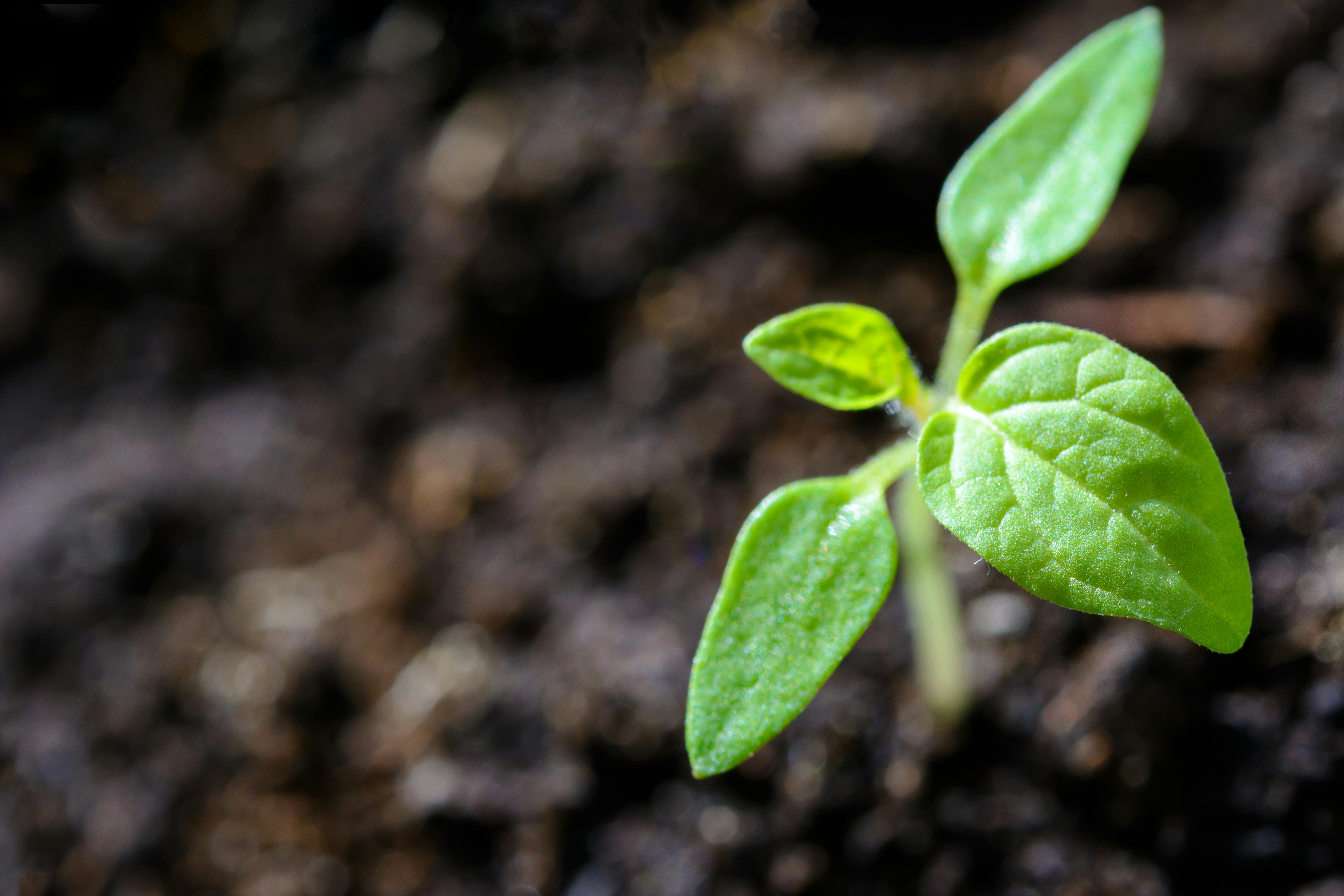Soil is an important part of growing a healthy ZZ Plant. The right soil type and mix can help ensure optimal growth and minimize the risk of disease. It’s important to choose a soil that has good drainage, as ZZ plants are prone to root rot if their roots stay wet for too long. A slightly acidic soil is also ideal for ZZ plants. With the right knowledge, you can find the perfect soil for your ZZ plant and keep it thriving for years to come.The best soil for ZZ Plant is a well-draining, aerated potting soil that contains peat moss. It should also contain some perlite or vermiculite to increase drainage. The soil should be slightly acidic, with a pH of 5.5 to 6.5.
What Kind of Soil Does a ZZ Plant Need?
The ZZ plant is an attractive, low-maintenance houseplant. It grows easily in a variety of soils, making it an ideal choice for the beginner or experienced gardener. The soil should be well-draining and slightly acidic, with a pH ranging from 5.5 to 6.5. For best results, use a potting mix specifically designed for houseplants or make your own using equal parts of peat moss, perlite, and vermiculite or compost. If you are growing your ZZ plant in a container, be sure to provide adequate drainage holes in the bottom to prevent waterlogging and root rot.
When watering your ZZ plant, use tepid water and allow the top inch or two of soil to dry out between waterings. Overwatering can cause root rot and other issues with the plant’s health. The soil should be moist but not soggy when it’s time to water again. Fertilize every three months during active growth periods with a balanced liquid fertilizer formulated for houseplants.
Finally, keep your ZZ plant in bright indirect light if possible. Direct sun can cause leaf burn or discoloration on the leaves so it’s best to avoid direct sunlight if possible. A south-facing window is ideal for most homes as it will provide plenty of light without causing any damage to the leaves of the plant.
Soil for ZZ Plant
ZZ plants are known for their hardy and easy-to-care-for nature, making them a popular choice for houseplant enthusiasts. One of the best ways to ensure that your ZZ plant stays healthy and happy is by providing it with the right type of soil.
The ideal soil for your ZZ plant should be loose and well-draining, such as a potting mix specifically designed for succulents or cacti. This type of soil will allow excess water to easily drain away from the plant’s roots, while also allowing air to reach them. This helps prevent root rot, which can be a major problem with ZZ plants.
In addition to being well-draining, the ideal soil for a ZZ plant should also be nutrient-rich. High quality potting mixes will contain fertilizer pellets that slowly release nutrients into the soil over time. These nutrients help keep your ZZ plant healthy and vibrant, while also helping it to grow stronger roots and leaves.
Finally, it’s important to choose a potting mix that is free of pests and diseases. Some soils may contain fungi or bacteria that can harm your ZZ plant, so it’s important to inspect the soil before use. If you are unsure about the quality of the soil, consider purchasing an organic potting mix specifically designed for succulents or cacti.
Overall, choosing the right type of soil for your ZZ plant is essential in order to keep it healthy and thriving. Make sure you opt for a loose and well-draining potting mix that contains fertilizer pellets and is free of pests and diseases. With proper care, your ZZ plant will remain lush and beautiful for years to come!
What Type of Potting Mix is Best for ZZ Plant?
The ZZ plant is a relatively low-maintenance houseplant that can tolerate a wide range of growing conditions. It’s important to remember, however, that the ZZ plant does need a good potting mix in order to thrive. When choosing the best potting mix for your ZZ plant, there are several factors to consider.
First, it’s important to select a potting mix that drains well and doesn’t become overly saturated with water. The ZZ plant is not tolerant of soggy soil and can suffer from root rot if the soil remains too wet for too long. To ensure proper drainage, you should look for a light and airy potting mix made from materials such as perlite, vermiculite, or peat moss.
Another factor to consider when selecting the best potting mix for your ZZ plant is aeration. A well-aerated potting mix will provide essential oxygen to the roots of your plant, allowing them to access vital nutrients more easily. This will help promote healthy growth and overall vigor in your ZZ plant.
Finally, it’s important to choose a potting mix that has been pre-fertilized with slow-release fertilizer pellets or granules. These fertilizers will provide your ZZ plant with all the nutrients it needs without having to be supplemented with additional fertilizers over time.
Overall, when selecting the best potting mix for your ZZ Plant it’s important to choose one that drains well and has adequate aeration and pre-fertilization included. By doing so you can ensure your ZZ Plant has all the nutrients it needs and the proper drainage necessary for optimal growth and health.
Soil Requirements for Growing ZZ Plant
ZZ Plant is an easy-care houseplant that can thrive in a variety of conditions. It does best in soil that is well-draining, slightly acidic, and has plenty of organic matter. The ideal soil for a ZZ Plant should be light and airy, allowing water to move freely through the soil. It should also have good aeration to ensure the plant’s roots can get enough oxygen. If the soil is too dense or compacted, it can lead to root rot and other problems. When planting a ZZ Plant, start with a mix of equal parts potting soil, peat moss, and perlite or vermiculite. This will create a soil that drains well but still has enough organic matter to retain moisture for the plant. Adding compost or mulch to the top of the potting mix can also help improve drainage and aeration while providing additional nutrients for the plant.

Common Problems with Growing ZZ Plant in Poor Soil
Growing ZZ Plant in poor soil can lead to several problems. If the soil is too sandy, it won’t hold enough moisture for the plant, resulting in dry and wilting leaves. Additionally, if the soil doesn’t contain enough nutrients, the plant will not be able to take up enough vitamins and minerals it needs to thrive. Poor soil can also lead to a decrease in root growth, which will ultimately affect the health of the plant.
To avoid these issues, it is important to ensure that your ZZ Plant is provided with well-draining soil that contains plenty of organic matter. This will help keep the soil moist and provide necessary nutrients for healthy growth. Additionally, you should make sure to water your plant regularly and fertilize it every few weeks during its growing season. Finally, make sure you are providing your plant with adequate light – either from direct sunlight or from a grow light – so that it can photosynthesize properly and stay healthy.
How to Choose the Right Soil for ZZ Plant?
Choosing the right soil for a ZZ plant is an important part of keeping the plant healthy and thriving. ZZ plants need soil that can hold moisture, but also allow water to drain away. The best soil for a ZZ plant is a well-draining soil mix with organic matter. It should be light and airy, so it doesn’t become compacted or waterlogged.
A potting mixture of one part peat moss, one part perlite, and one part sand or vermiculite is ideal for a ZZ plant. This blend provides both good drainage and moisture retention. If you are using store-bought potting soil, look for one that contains perlite, which helps create air pockets in the soil and allows excess water to escape.
It is also important to use a pot with drainage holes in the base so that any excess water can escape after watering. This will prevent root rot from occurring due to standing water in the pot. If you are using a terracotta pot, make sure to add some rocks or gravel on the bottom before adding the soil mix in order to further aid drainage.
Finally, it is important not to overwater your ZZ plant as this can cause root rot and other problems. Monitor your plants regularly by lightly touching the top of the soil – if it feels dry then it’s time to give it a drink!
Preparing the Soil for ZZ Plant
ZZ plants are highly resilient, making them popular houseplants. They can thrive in a variety of soil conditions, but they prefer well-draining soil that is slightly acidic. Preparing the right soil for your ZZ plant will help ensure its long-term health and vitality.
The first step to preparing your ZZ plant’s soil is to select a potting mix that is loose and free draining. A mix of peat moss, perlite, and vermiculite is ideal as it provides good drainage while still retaining some moisture. You can also buy pre-made potting mixes specifically designed for succulents and cacti.
Once you have selected your potting mix, you will need to adjust the pH of the soil. ZZ plants prefer slightly acidic soil with a pH of 5.5 – 6.5. To adjust the pH, you can add some compost or aged manure to the potting mix before planting your ZZ plant. Alternatively, you can use a pH testing kit to determine if the soil needs adjustment.
Before planting your ZZ plant in its new home, make sure to break up any large clumps in the potting mix with a garden fork or trowel so that it does not become compacted when watered. This will help ensure adequate drainage and prevent root rot or nutrient deficiencies in your plant.
Finally, make sure to water your ZZ plant regularly but do not overwater it as this can lead to root rot or other issues. Once established in its new home, your ZZ plant should be able to thrive with minimal care and attention required!

Conclusion
Zz plants are a great choice for any kind of home or office space. They are low maintenance and hardy, making them an ideal plant for both novice and experienced plant parents. The key to keeping a healthy Zz plant is to provide it with well-draining soil that retains moisture but doesn’t become soggy. A combination of potting soil, perlite, and peat moss is an excellent option as it provides the perfect balance of drainage and aeration for the Zz plant’s root system. Additionally, providing adequate moisture during its growing season can help Zz plants to thrive in any environment.
In conclusion, if you are looking for an easy-to-care-for houseplant that will brighten up any space, the Zz plant is a great choice. Make sure to provide it with well-draining soil that contains plenty of organic matter and water frequently during its growing season and your Zz plant will reward you with lush new growth for years to come.

